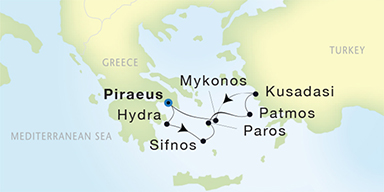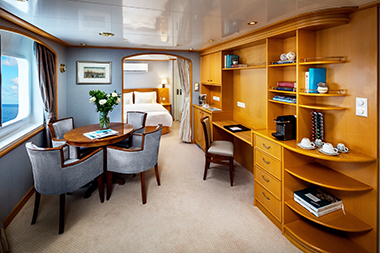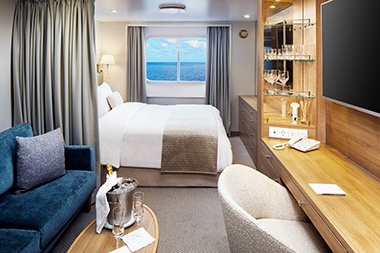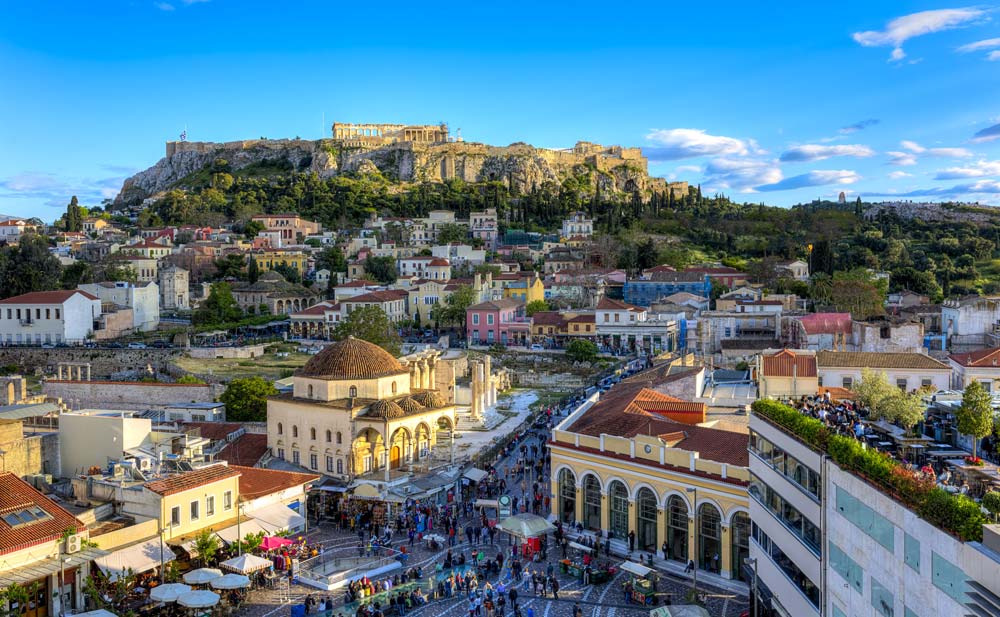
Piraeus, roughly translating to “the place over the passage”, is an important Greek port located within the Athens agglomeration, in the Attica Basin. It is 12 kilometers from the municipality of Athens, considered the fourth largest and is the third most populous amongst all the municipalities of Greece. Now a peninsula, Piraeus, originally a rocky island, was developed in early 5th Century B.C. when it was initially designated as Athens’ import and transit trade port. It is the largest marine-based shipping center of Greece, one of the largest ports in Europe, and considered the second largest passenger port in the world. Inhabited since the 26th Century, it wasn’t until the 6th Century B.C. that Piraeus began catching attention. The land of Piraeus was essentially impassable, flooded by the sea most of the year until centuries passed and the flooding ceased. By the 5th Century B.C. it became a navy base for the Athenian fleet for the natural harbors and the strategic potential they carried. Athenian general and politician Themistocles fortified Piraeus’ three harbors Kantharos, Zea and Munichia, created ship houses and completed his walls in 471 B.C., which led to the port becoming a great military and commercial harbor. There are many archaeological sites, points of interest and entertainment available in Piraeus. Most famous for its tavernas and cuisine, several popular events take place in Piraeus, such as the Ecocinema International Film Festival, the Maritime Festival, the Piraeus Rock Wave Festival and the Three Kings’ Way Festival. There are also many theaters, including the Municipal Theater, the open air Veakeio Theater, and the Menandreio Theater. Museums in Piraeus include the Archaeological Museum of Piraeus, the Merchant Shipping History Institute Exhibition, the Panos Aravantinos Decor Museum, the Georgios Averof Museum Ship and the Museum of Electric Railways. Be sure to catch the panoramic views available from the hill of Kastella, overlooking Athens and the Saronic Gulf!

There is one main town on Hydra, known simply as "Hydra port". It consists of a crescent-shaped harbor, around which is centered a strand of restaurants, shops, markets, and galleries that cater to tourists and locals (Hydriots). Steep stone streets lead up and outwards from the harbor area. The charm of Hydra town certainly lies in her rich history, beautiful port and waterfront unspoiled by motorized vehicles. The island offers a rugged charm and some spectacular scenes and makes the perfect place for some self-exploration.
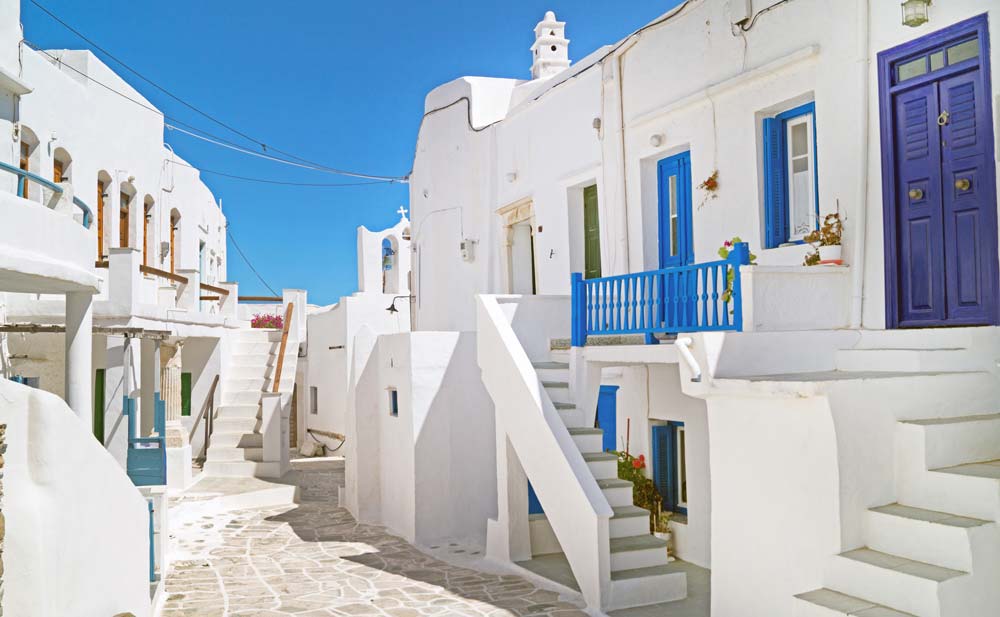
This Greek Isle's history dates back before the year 4000 BC. The island has a rich history of silver and lead mining and was one of the first places where currency minting occurred in Greece. Today, the island is frequented for its beaches, churches, festivals, food, and of course, classic Greek isle architecture.
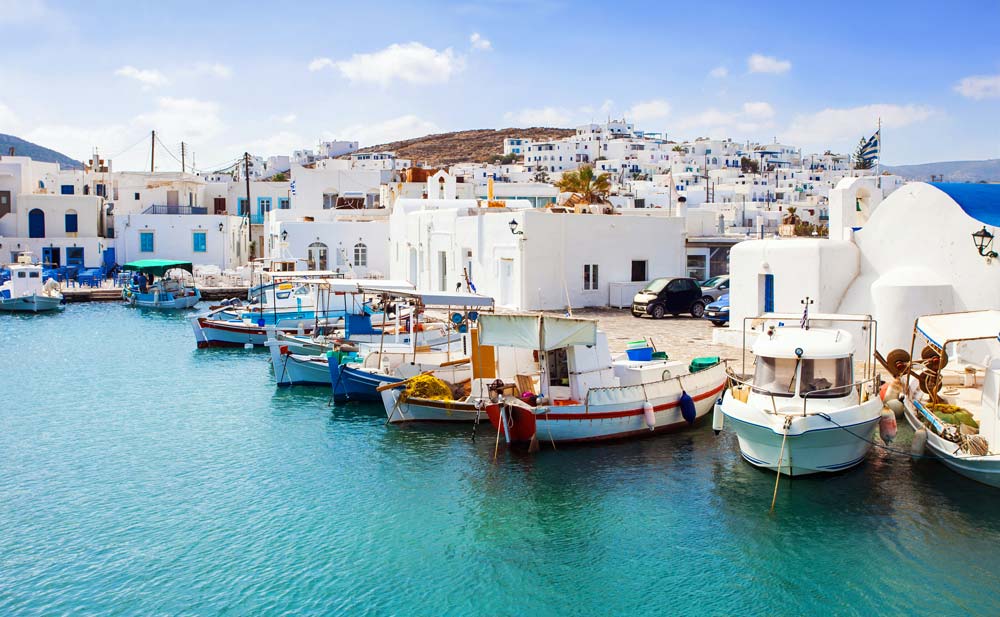
Paros is an island of Greece in the central Aegean Cyclades group. With the popularity and sometimes overcrowding at Santorini and Mykonos, Paros offers a quieter, unspoiled Cyclades option. Historically, Paros was once known for its fine white marble, which gave rise to the term "Parian" to describe marble or china of similar qualities. Some consider Paros the most beautiful in this island group – you be the judge! It has beautiful beaches and charming villages. Most visitors make an effort to see the famous Church of Ekatontapyliani (Our lady of a Hundred Doors). This church is the holy place of Paros and is linked to the history and myths of Byzantium. Tradition and history state that the church began life in the reign of Constantine the Great (280 - 337 A.D.) or Justinian (527 - 565). After its restoration in 1959, this church, the brightest jewel in the crown of Orthodoxy in the Aegean, became the third most important Christian building in Greece, after the Panayia Akheiropoietos and St. Demetrios in Thessaloniki.
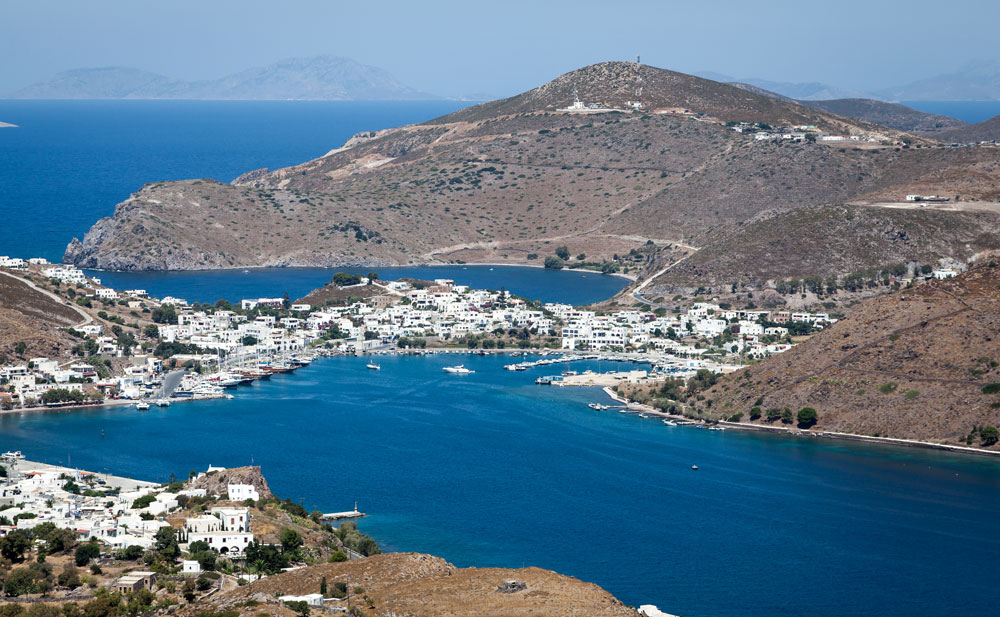
Patmos is in the South Aegean Islands, particularly a member of the Dodecanese Islands of Greece. It is north of Leros and is most known for its connection to John the Apostle from the Book of Revelations; therefore Christian pilgrims frequent this destination. In mythology, Patmos was named “Letois”, which is another named for the goddess Diana, Leto’s daughter. Since ancient authors seldom mention Patmos in early text, information on early inhabitants is limited. It is widely believed the original people of Patmos were the Carians from Asia Minor, as discovered by the earliest archaeological findings date back to the Bronze and Mycenaean periods. The mountain in the country of Caria was named Latmos, which is where historians believe the name Patmos is derived from. Dorians also colonized in Patmos, and over time, Ionians followed suit. The primary port in Patmos is Skala, which was one of the most important sea ports in the Mediterranean around the 16th century. Early Christian basilicas were constructed in the name of John of Patmos, however between the 7th and 9th century when Saracen attacks were still problematic, the Grand Royal Basilica was destroyed. A monastery began construction in 1101 when Christodoulos assumed authority over Patmos. The population began expanding as immigrants from the fall of Constantinople and Candia to place in the 15th and 17th centuries, respectively. The island was under the Ottoman rule for years and was interrupted by Venice during the Candian War, Russia during the Orlov Revolt, and Greece during their War of Independence. During the Italo-Turkish War, Italy occupied Patmos until 1943, when Nazi Germany held power over the island until 1945. Since Patmos rejoined in 1948, it has become the tranquil and frequented destination it is now. Tourists visit the Monastery of St. John, Chora, the Cave of Apocalypse, Psili Ammos Beach and other beautiful points of interest in “Europe’s most idyllic place to live,” as named by Forbes in 2009.
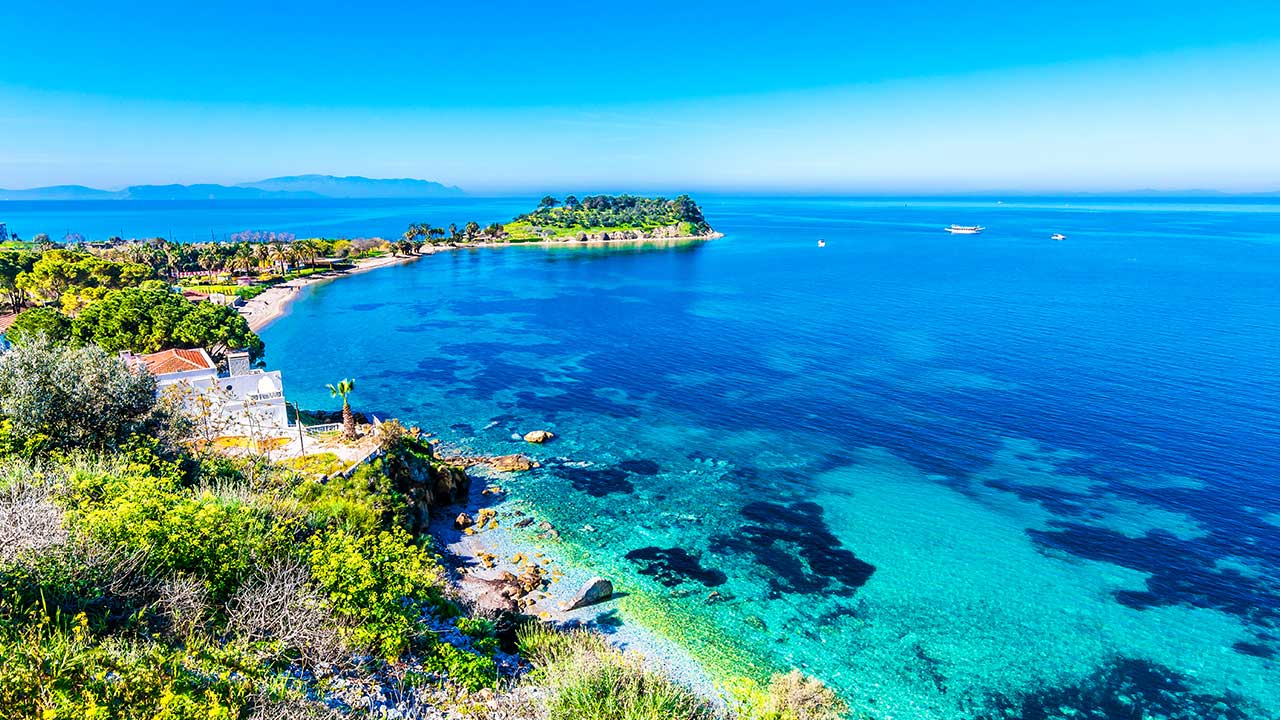
Kusadasi is a beach resort town on Turkey’s Aegean coast and the center of the seaside district of the same name in Aydin Province. The seaside town is also your gateway to the classical ruins at nearby Ephesus, among the world’s best preserved ancient Greco-Roman remains, including its excavated Terrace Houses and House of the Virgin Mary. Kusadasi’s seafront promenade, marina, and harbor are lined with quaint restaurants. Just offshore on Pigeon Island stands a walled thirteenth-century Byzantine castle that once guarded the town. Meet resident wild boars at nearby Dikek National Park, comprised of four secluded beaches, a spectacular coastline, and incomparable views of the Aegean Sea, just one of Turkey’s many protected conservation areas.

Mykonos is one of the most visited Greek Islands. It is part of the Cyclades group and lies between Tinos, Syros, Paros and Naxos. The island spans an area of 85.5 square kilometers (33.0 sq mi) and rises to an elevation of 341 meters (1,119 feet) at its highest point. Mykonos is so incredibly beautiful; it is not surprising that it has become one of the most desired destinations in the world. When you also add the cosmopolitan lifestyle, the sophisticated nightlife and the historical treasures of the nearby UNESCO Awarded Delos you’ll have the recipe for an unforgettable holiday. SeaDream usually anchors just of the famous windmills and tenders directly to the old town. Guests have a few organized options including the Sacred Island of Delos. Others may simply want to explore the island’s incredible beaches, boutiques, clubs and churches independently.
Suites & Staterooms
*Single Supplement for this voyage is 200% for Yacht Club Deck 2, 3 and 4. For Commodore, Admiral and Owners Suite, a 200% single supplement rate applies.
Government, Port, Document Issuance, Handling & Service fees: $427 per guest (included)
Please Note: Fares are capacity controlled and may change without notice. The fares are per person based on double occupancy. Single and third person rates are also available. SeaDream Yacht Club strongly recommends that all guests purchase travel insurance.
Yachting Land Adventures & Activities
Please check back soon for updates.
Testimonials
At SeaDream, our experience was great in the lap of nature (at sea). The hospitality, courtesy and responsibility was at its height... flowing throughout the voyage. Really a memorable experience!! Mitu & Harjit S.India
This was way over our expectations. All the way top service, very nice personnel. We'll be back! Mr. Henning V.Sweden
